What chromosome causes Down Syndrome? If chromosome 21 is in the presence of three copies. The Howard Hughes Medical Institute researchers have developed a new prenata blood test that accurately detected Down Syndrome and two other serious chromosomal defect in a small study of 18 Pregnant wome. (Citation 6) 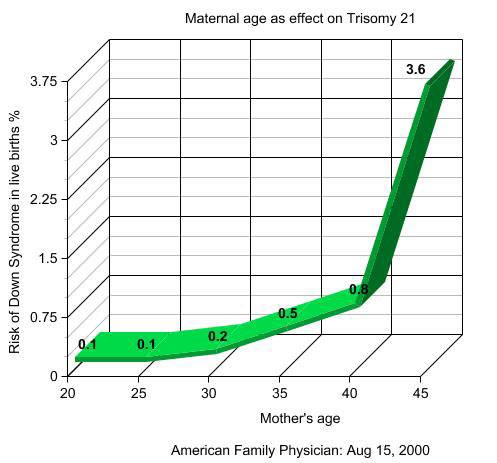 Why should I consider screening for Down syndrome?Many parents-to-be worry that their developing baby may have Down syndrome or some other chromosomal abnormality. Screening tests help you assess your baby's chances of having this kind of problem. The results can help you decide whether to have invasive diagnostic testing to find out for sure about your baby's condition. (Citation 6) 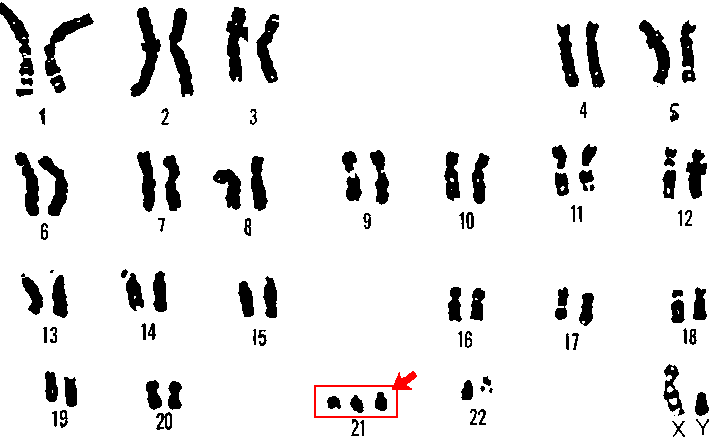 What can a screening test tell me?Screening tests use blood samples and ultrasound measurements to assess your baby's chances of having certain chromosomal problems, including Down syndrome. They aren't invasive, so they don't pose any risk to you or your baby.
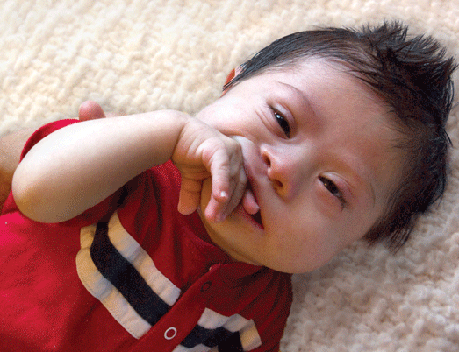 |
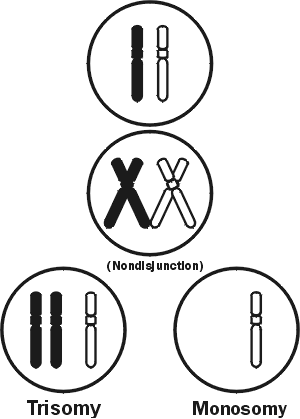
How common is Down Syndrome? Down Syndrome occurs in about 1 in 740 newborns. The chances of having a child with down syndrome increases as the wome gets older. (Citation 6) 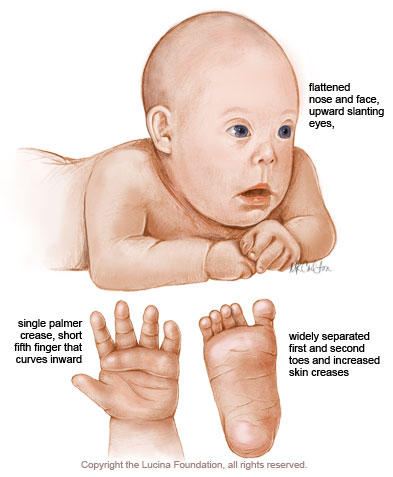
What's a chromosomal abnormality?Chromosomes are threadlike structures in our cells that carry our genes. Most people have 46 chromosomes in each cell, with one set of 23 coming from the mother's egg and the other set from the father's sperm. |